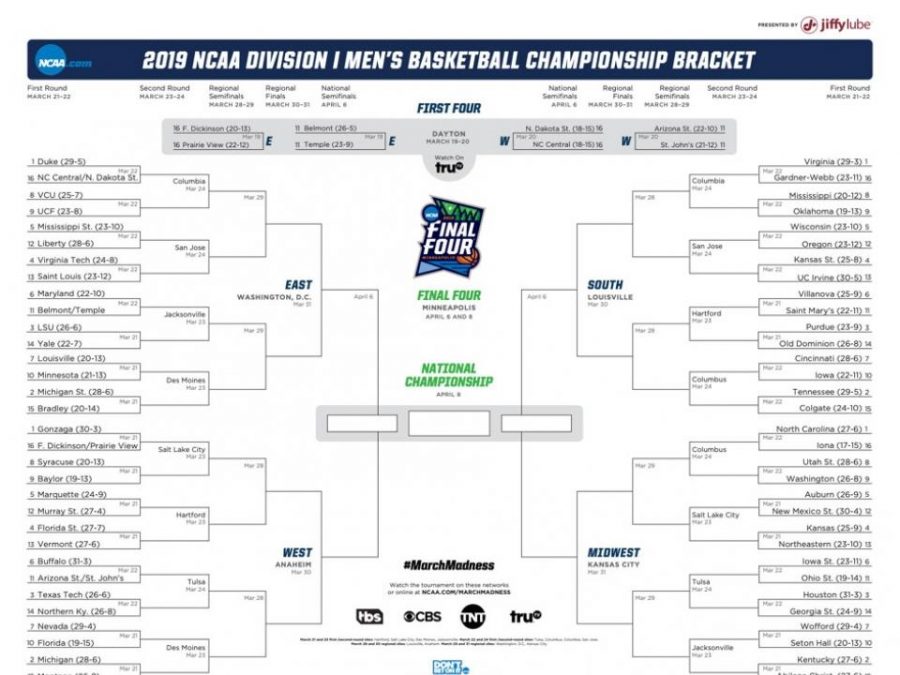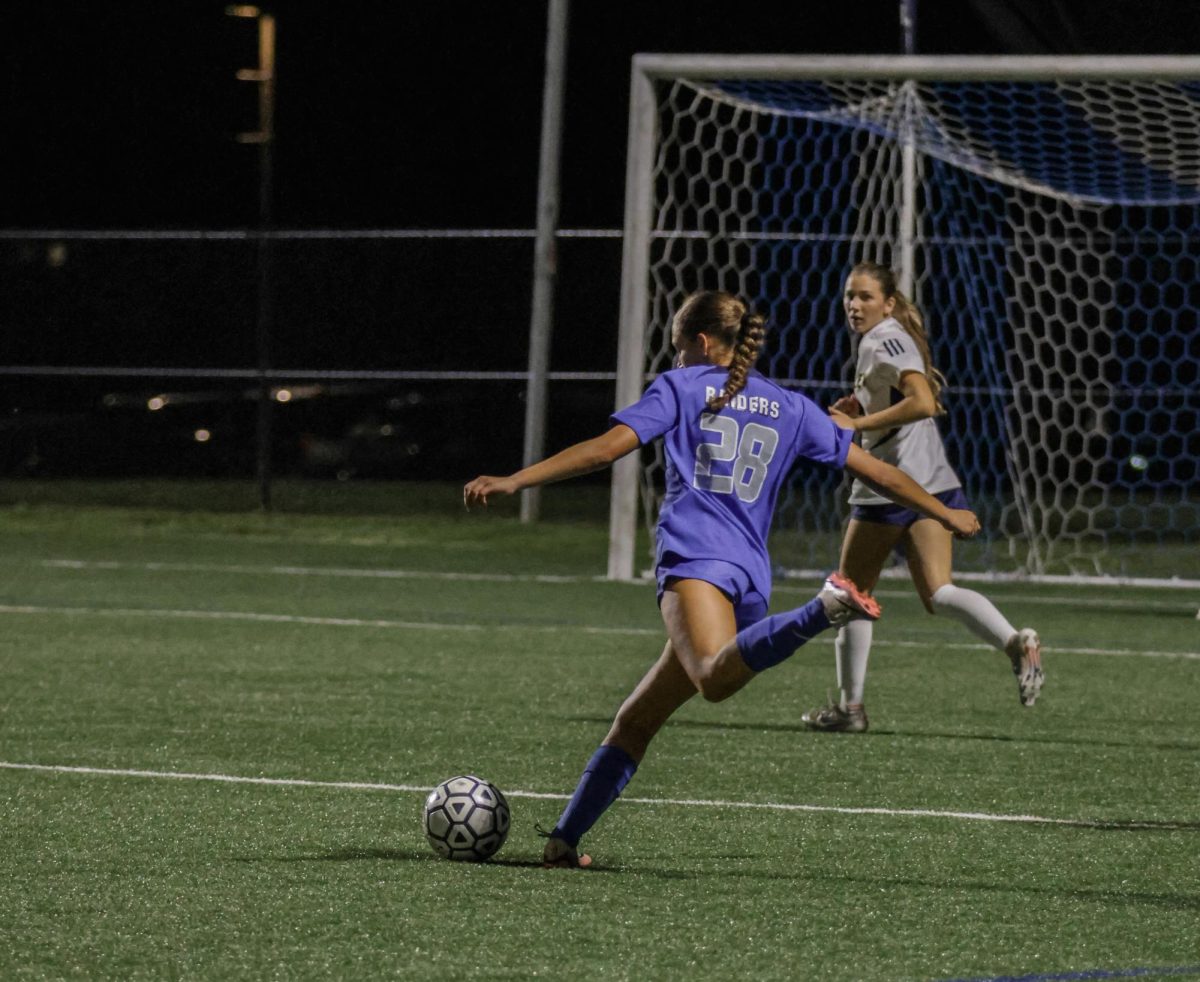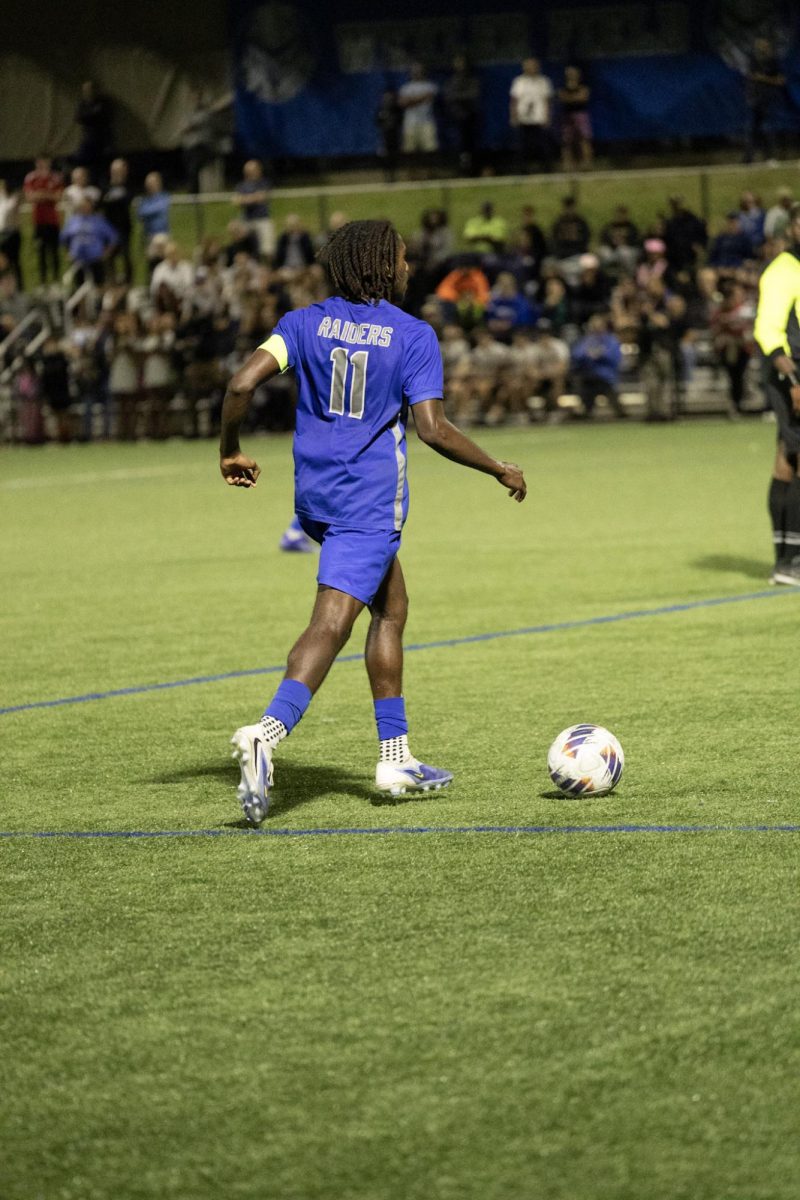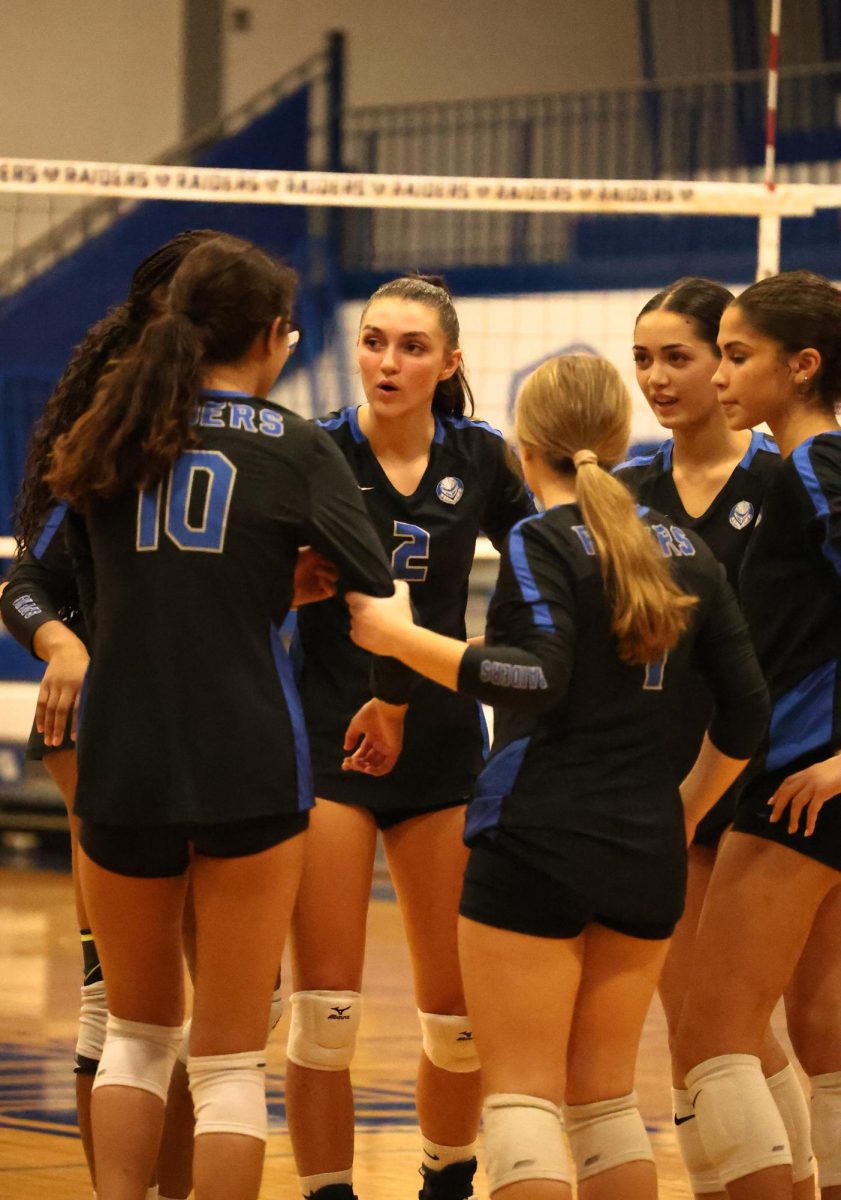March has more to offer than just Saint Patrick’s Day and a break-less school month: March Madness. The 2019 NCAA tournament began on March 17, known as Selection Sunday, in which 64 NCAA teams were selected and put into the official bracket. This year, Duke, Virginia, North Carolina, and Gonzaga are the number one seeds, which makes it seemingly easy for some bracket picks, with Duke, Virginia, and North Carolina belonging to the ACC. However, it’s hard to forget last year’s incredible upset where no. 16 seed UMBC defeated no. 1 seed Virginia in the first round. This was the first time in NCAA tournament history that a no. 16 seed defeated a no. 1 seed in the first round, so it’s important to keep in mind that upsets are very much a reality. Here are some additional tips and teams to look for in the 2019 NCAA tournament.
Don’t be too risky with the first 3 seeds
(Yes, this may contradict the point of the UMBC upset over Virginia last year). Though it may be interesting to pit a potential win of a lower seed over a higher seed in the first round, it is statistically against the favor of the no. 16 seed. Regardless of the defeat of UMBC over Virginia last year, no. 1 seeds are still 135-1 against no. 16 seeds. This year, those no. 1 seeds will be facing off against predictable no. 16 teams – Duke v. either North Carolina Central or North Dakota State (depending on which team wins in the First Four), Gonzaga v. either Fairleigh Dickinson or Prairie View (once again depending on the results of the first four), Virginia v. Gardner-Webb, and North Carolina v. Iona. Expect Duke, Gonzaga, Virginia, and North Carolina to advance, regardless of the comical pressure that Virginia may have on them this year. Even seeds 2 and 3 are all expected to advance to the second round of 32. There have only been eight 15-seeds in NCAA tournament history that have defeated 2-seeds, the last time being Middle Tennessee over Michigan State in 2016. Basketball powerhouses Michigan, Michigan State, Tennessee, and Kentucky hold the no. 2 seeds this year, and the no. 15 seeds Bradley, Montana, Colgate, and Abilene Christ historically only have a 5.88% chance to beat them. There will be talk of a no. 14 seed over a no. 3 seed, which historically is more likely (15.44%). However, other than a predicted upset over no. 3 LSU by no. 14 Yale, bracket experts have predicted that other no. 3 teams Texas Tech, Purdue, and Houston will advance over no 14. Northern Kentucky, Old Dominion, and Georgia State. It’s fun to predict a full tournament upset, but keep in mind that the Final Four has never featured a team that seeds no. 11 or higher. Upsets at this level are possible… but simply not likely for the top 3 seeds.
Look for the 12/5 defeat
The 12/5 defeat is one that is commonly referenced, but for good reason – 8 of the last 10 NCAA tournaments featured at least one 12/5 defeat, with 6 of them featuring more than one. Regardless of history, an upset by no. 12 Murray State over no. 5 Marquette this year isn’t unlikely, with help from guard Ja Morant, a 6 ft 3 sophomore who’s projected to be a top-three NBA draft pick. Though Marquette guard Markus Howard has an 0.5 higher scoring average than Morant, Howard aggravated a left-wrist injury against Seton Hall in the Big East tournament semifinals last week, which could possibly result in a lower free-throw percentage. Other no. 12 teams are predicted to cause an upset this year as well – Liberty, Oregon, and New Mexico State could very likely beat Mississippi State, Wisconsin, and Auburn. Historically, there is an 80% chance that there will be at least one 12/5 defeat, and even more likely to come from Murray State.
Devote your research time on the 8/9
The 8/9 game in the first round can go either way. At this point, the no. 8 and no. 9 seeds are often neck and neck, which can make this part of the bracket unlikely to call, and can potentially mess up a whole region. This year, the 8/9 matchups are VCU v UCF, Syracuse v Baylor, Ole Miss v Oklahoma, and Utah State v Washington. Not only do these teams have similar records, but they have similar offense-defense matchups. It is also hard to find a consensus opinion on which team will win, as every bracket expert is favoring a different team, rightfully so. Make sure to do your research on the coach history, team history, and key players to make an accurate pick that can advance your bracket. VCU v UCF is one of the most anticipated games of the first round, as VCU came through with a surprisingly successful season, with a league finish of 16-2, while UCF had a league finish of 13-5. Syracuse has a 51.8% chance of defeating Baylor, according to ESPN, yet Baylor has a better record. Ole Miss scores an average 76 points per game while Oklahoma scores an average of 71.2. Recognize that Utah State automatically qualified for the NCAA Tournament through the Mountain West tournament, the only team out the 8/9 matchups that qualified through a conference. However, they have also lost seven straight NCAA tournament games. However, NONE of these statistics are a guarantee of either team winning. Be smart, but be realistic. Losing at least one 8/9 bracket is likely.
Historical statistics are used (even in this article) because they’re typically reliable and favored. However, upsets are common and LIKELY. The 12/5 upset happens often, as mentioned before, and the 11/6 upset is not a surprising one as well. Don’t just pick whichever team ranks higher as your bracket pick for each round – recognize both teams strengths and weaknesses.
Look for the following predicted upsets:
No. 11 Belmont over Temple and no. 6 Maryland
No 13. Northeastern over no. 4 Kansas
No 1. Iowa over no. 7 Cincinnati
First round begins on Thursday, 3/21, starting with no. 10 Minnesota v no. 7 Louisville at 12:15 pm. Good luck with your brackets!
March Madness: Teams and Bracket Tips
March 18, 2019
0
More to Discover














